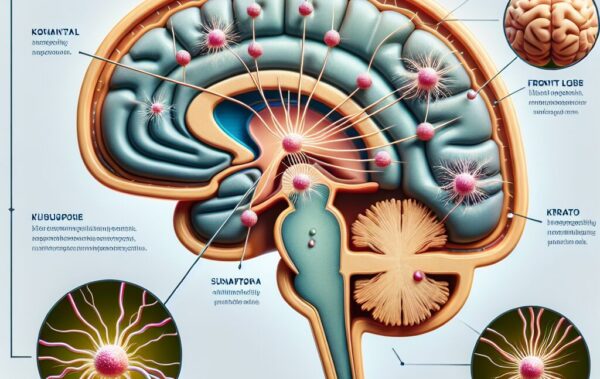- Understanding kratom and its active components
- The relationship between kratom and sleep quality
- Proper dosages and strains of kratom for sleep
- Potential side effects and considerations when using kratom for sleep
- Frequently Asked Questions (FAQs) about kratom and sleep
Kratom, a tropical tree native to Southeast Asia, has gained popularity worldwide as a natural remedy for various conditions, including as a sleep aid. The leaves of the kratom tree contain a wealth of compounds, with mitragynine and 7-hydroxymitragynine being the most prominent. These alkaloids interact with the brain’s opioid receptors, but they do not create the same high level of dependency or the potential for abuse that classical opioids do.
One reason some people turn to kratom for sleep is due to its potential sedative effects, particularly when used in larger doses. The active components in kratom can help to calm the mind, reduce stress, and create a more restful state which may be beneficial for individuals struggling with insomnia treatment. It’s these calming effects that have led to its use as an herbal remedy for better sleep.
The way in which kratom influences sleep is complex and varies depending on dosage, strain, and individual biochemistry. Different strains of kratom, such as the red vein varieties which can be found in options like Red Vein Kratom Powder or Red Vein Kratom Capsules, are often recommended for their sedative properties and may assist in eliciting a more tranquil state conducive to sleep.
Researchers have also studied kratom’s effects on various neurotransmitter systems which could impact the sleep-wake cycle. Its influence on serotonin and dopamine levels, for instance, could play a role in mood regulation and relaxation, potentially providing a benefit for those who have trouble unwinding at night.
When it comes to kratom’s use as a sleep aid, it’s crucial that individuals understand not only the potential benefits but also the right types of kratom strains and the correct dosages to achieve the desired effect. Exploring products such as those in the Kratom Liquid Extracts/Tinctures category may offer a more controlled means of intake for new users.
As with any herbal remedy, personal experience can vary, and it’s important to approach kratom use with mindfulness and care, consulting with a healthcare provider when necessary. Those exploring kratom for sleep should be aware of proper dosing guidelines, the different strains available, and how to responsibly incorporate kratom into their sleep hygiene practices.
The following are quick key points to remember about kratom’s active components and their potential as a sleep aid:
- Mitragynine and 7-hydroxymitragynine are the primary active alkaloids in kratom, influencing the brain’s opioid receptors with a lower risk of dependence.
- Kratom has sedative properties that may be beneficial for individuals with insomnia when used in the right dosage and strain.
- The herbal remedy works on several neurotransmitter systems that could affect relaxation and mood, important factors for sleep quality.
- Red vein strains of kratom are often recommended for their sedative effects, and liquid extracts or tinctures can provide precise dosing.
- As with all herbal remedies, individual experiences with kratom can vary, and it’s essential to use it responsibly and under guidance if necessary.
| Active Alkaloid | Effects on Sleep |
|---|---|
| Mitragynine | Sedation, Relaxation |
| 7-hydroxymitragynine | Enhanced Calmness, Pain Relief |
| Overall Properties | Mood Regulation, Stress Reduction |
With a greater understanding of kratom’s active components and their influence on promoting better sleep, it’s essential to consider proper usage, including dosages and potential side effects. The next sections of this article will delve into appropriate strains and dosages and discuss considerations to be aware of when using kratom for sleep improvement.
For additional resources and information on kratom strains suited for sleep aid, you can explore the Kratom Shop Page for a wide selection of products. Remember, informed and responsible use is key to utilizing kratom effectively as part of a healthy sleep regimen.
The relationship between kratom and sleep quality
Understanding the nuanced relationship between kratom and sleep quality involves diving deeper into how this herb interacts with physiological processes associated with sleep. For individuals wrestling with restless nights, insomnia treatment options can seem limited. Herbal remedies like kratom often offer an alternative for those looking for more natural sleep aid solutions.
Kratom’s potential sedative effects are notably pronounced when consumed in higher doses, with specific strains such as the red vein varieties becoming particularly sought after for their propensity to induce relaxation and calm. Moreover, kratom might affect the length and quality of sleep by interacting with neurotransmitter systems within the brain.
It’s worth noting that sleep quality doesn’t solely hinge on the ability to fall asleep; it also encompasses how restful and undisturbed the sleep is. Users report that kratom can pave the way for a more continuous and restorative sleep experience, which is essential for overall health and wellbeing.
Let’s delve into a few key facts illustrating the correlation between kratom use and sleep patterns:
- The sedative effects of kratom are likely to be more discernible with larger doses, particularly before bedtime.
- Red vein strains, such as those available in the Red Vein Kratom Powder category, are often recommended for sleep due to their relaxing properties.
- While kratom may not directly induce sleep, its ability to alleviate discomfort and create a calming effect can be instrumental in setting the stage for better sleep quality.
While exploring kratom as a sleep aid, it is imperative to find a trustworthy source offering a variety of high-quality products, such as the diverse options on the Kratom Shop Page. Moreover, users interested in kratom should approach its use with an eye for detail, particularly concerning dosage and one’s personal response to its effects.
It is crucial to keep in mind the varied individual responses to kratom and ensure proper dosage and strain selection in consultation with health professionals if necessary. The following table provides a glance at the popular kratom strains favored for sleep assistance and the respective characteristics they exhibit:
| Kratom Strain | Reported Effects on Sleep Quality |
|---|---|
| Red Vein Kratom | Sedative, Aids in Falling Asleep |
| Green Vein Kratom | Balanced, Can Help Maintain Sleep |
| White Vein Kratom | Stimulating, Less Common for Sleep Aid |
The depth of kratom’s relationship with sleep goes far beyond its superficial calming effects; it encompasses a well-rounded impact on the entirety of one’s sleep cycle. The subsequent sections of this article will cover how to find the appropriate dosages and strains of kratom for sleep, as well as shed light on potential side effects and important considerations to be made when choosing kratom as a sleep aid.
Proper dosages and strains of kratom for sleep
When discussing the specifics of kratom as a potential sleep aid, proper dosages, and strains of kratom are of paramount importance for effectiveness and safety. Kratom’s impact on sleep can dramatically vary depending on how much is taken and which strain is used. The right combination can promote relaxation and ease the way into a night of restful sleep, hence its appeal for those considering it for insomnia treatment and other sleep disturbances.
To target sleep, a common recommendation is to consider using red vein kratom strains. Red vein kratom, known for its calming and sedative effects, tends to be the go-to choice for those seeking to improve their sleep. Strains like Red Bali or Red Borneo, which you can find within the Red Vein Kratom Powder or Red Vein Kratom Capsules categories, are noted for their potential to help with unwinding after a long day. These strains may promote a calm mental state, which is often an essential precursor to falling asleep.
When it comes to dosage, the principle of “less is more” should be cautiously applied, especially for new users. Starting with a lower dose and gradually increasing it as necessary can help in finding the most beneficial amount with minimal side effects. The general guideline for using kratom for sleep is to take a higher dose than what might be used for energy or focus—typically in the range of 4 to 5 grams. However, due to variability in strength among different strains and products, it’s crucial to start low, with perhaps 2 to 3 grams, to assess personal tolerance.
For those interested in a convenient, measure-free intake, capsules such as Kratom Capsules could be a suitable option as they come in pre-measured doses. On the other hand, those preferring to tailor their dose may opt for powders or loose-leaf options, where digital scales from the Digital Scales category can be of assistance.
Potential side effects of larger dosages include dizziness, nausea, or drowsiness that could linger into the next day. These side effects underscore the importance of starting small with dosages and monitoring personal responses closely. Bear in mind that formulations such as Kratom Liquid Extracts/Tinctures can be much more potent, so dosing needs to be adjusted accordingly.
Here are some key points to remember when choosing dosages and strains:
- Red vein strains are often preferred for their relaxant properties and may be helpful as a sleep aid.
- Begin with a low dose to assess tolerance and avoid potential side effects.
- Measure doses carefully using digital scales for powders or consider capsules for pre-measured convenience.
- While higher doses are generally associated with more substantial sedative effects, they should be approached with caution.
It’s essential to recognize that kratom’s efficacy and safety as a sleep aid may not be consistent for everyone, thus it should be used responsibly. Personal experimentation under the guidance of a healthcare professional can help determine the most suitable dosage and strain for individual needs. The subsequent sections will delve into further considerations to bear in mind when using kratom as an herbal remedy for better sleep.
Potential side effects and considerations when using kratom for sleep
 As we venture further into kratom’s role as a sleep aid, it is important to consider not only its potential benefits but also the potential side effects and safety considerations of using kratom for sleep. While many users report positive experiences with kratom for insomnia treatment and general sleep improvement, like all herbal remedies, kratom is not without its caveats.
As we venture further into kratom’s role as a sleep aid, it is important to consider not only its potential benefits but also the potential side effects and safety considerations of using kratom for sleep. While many users report positive experiences with kratom for insomnia treatment and general sleep improvement, like all herbal remedies, kratom is not without its caveats.
The sedative effects of certain kratom strains may be precisely what some individuals are seeking; however, larger doses used for such effects can come with a set of side effects. Users might experience dizziness, gastrointestinal issues like nausea or constipation, and even excessive drowsiness that extends into the waking hours. For some, the latter might lead to a groggy feeling the following day, counteracting the restfulness of their sleep.
Furthermore, as with any substance that affects the central nervous system, there is the potential for dependency when kratom is used habitually, especially at high doses. Therefore, it’s essential to use kratom judiciously and practice occasional breaks from use to prevent habituation. Regular users may also develop tolerance, meaning they would need to consume higher doses over time to achieve the same sedative effect, which could further increase the risk of side effects.
It’s also important to note that kratom’s legal status varies globally, and even within the United States, it is not legal in all states or locations. Before considering kratom as a sleep aid, ensure that it is legal in your area and that you are purchasing it from reputable sources. The Kratom Shop Page offers a variety of products sourced from trustworthy suppliers. Always look for products that provide transparent information about strain, dosage, and lab testing for quality assurance.
When considering beginning to use kratom, it’s advisable to do so under the consultation of a healthcare provider, especially for those with preexisting health conditions, those taking other medications, or individuals with a history of substance misuse. For a detailed account of which kratom strains are better suited for enhancing sleep quality, seasoned users often turn toward the more sedative red vein varieties which can be found on the Red Vein Kratom Powder page.
Before you start using kratom for sleep, here are considerations to keep in mind:
- Be aware of the potential side effects such as dizziness, nausea, and lingering drowsiness.
- Plan to use kratom sparingly to prevent tolerance and potential dependency.
- Confirm the legality of kratom in your region before purchasing or consuming it.
- Consult with a healthcare professional before starting kratom, especially if you have health conditions, are pregnant, or are on other medications.
- Purchase kratom from reputable sources that offer lab-tested, quality products.
These precautions are not meant to dissuade from the potential benefits kratom holds for those suffering from sleep difficulties but rather to promote its safe and informed use. As we explore the multifaceted nature of kratom in promoting better sleep, doing so responsibly and with awareness of potential risks remains vital.
The remainder of this article will answer frequently asked questions surrounding kratom and sleep, offering a broader understanding for those interested in exploring this ancient herbal remedy.
Frequently Asked Questions (FAQs) about kratom and sleep
In our exploration of kratom as a potential sleep aid, we’ve touched on its sedative properties, how different strains like the red vein varieties may offer benefits for those in need of insomnia treatment, and what proper dosages might look like. Given this information, it’s only natural that more questions may arise. As part of our commitment to providing valuable insight, let’s address some of the most frequently asked questions about kratom and its impact on sleep.
Is kratom a safe sleep aid?
Like many herbal remedies, safety is dependent on various factors including dosage, frequency of use, and individual health conditions. While kratom can be used as a sleep aid, particularly the red vein strains known for their sedative effects, it’s essential to approach its use cautiously. Potential side effects can occur, especially with higher dosages. Always ensure you’re in compliance with local laws and seek advice from a healthcare provider before using kratom.
What are the best strains of kratom for sleep?
Typically, the red vein kratom strains are considered the best option for improving sleep due to their sedative properties. Strains like Red Bali, Red Thai, and Red Borneo have been reported by users to be effective in promoting relaxation and sleep. You can explore a variety of these strains in both powder and capsule form on the Red Vein Kratom Powder page.
How much kratom should I take for sleep?
Dosage will vary widely depending on individual sensitivity and the strain’s potency. Generally, a higher dose is recommended for sleep—the range being 4 to 5 grams. However, it’s best to start with a smaller dose, such as 2 to 3 grams, to gauge your response, as each individual’s reaction can differ. If you’re new to kratom, consider starting with products like Kratom Capsules, which offer a pre-measured amount of kratom.
Can kratom help with insomnia treatment?
While there’s anecdotal evidence suggesting that kratom can help individuals with insomnia, it’s important to understand that it should not replace medical advice or prescription medications. If you’re considering kratom for insomnia, it’s strongly advised to speak with a healthcare provider, particularly if you’re currently experiencing severe sleep disturbances.
Are there any side effects to using kratom as a sleep aid?
Some individuals might experience side effects such as dizziness, nausea, or prolonged drowsiness into the next day. These effects can often be attributed to higher dosages, so starting with a lower dose is recommended. As with any sleep aid, herbal or otherwise, there’s also the risk of developing a tolerance or dependence with frequent use.
In the end, whether you’re reaching for kratom or other herbal remedies as a sleep aid, responsible use cannot be overstressed. Quality sleep is a crucial component of overall health, and while kratom may offer relief for some, it’s imperative to use it wisely, within legal boundaries, and with health considerations in mind. For those looking to purchase or learn more about kratom, visit the Kratom Shop Page for a selection of quality products and further information.









